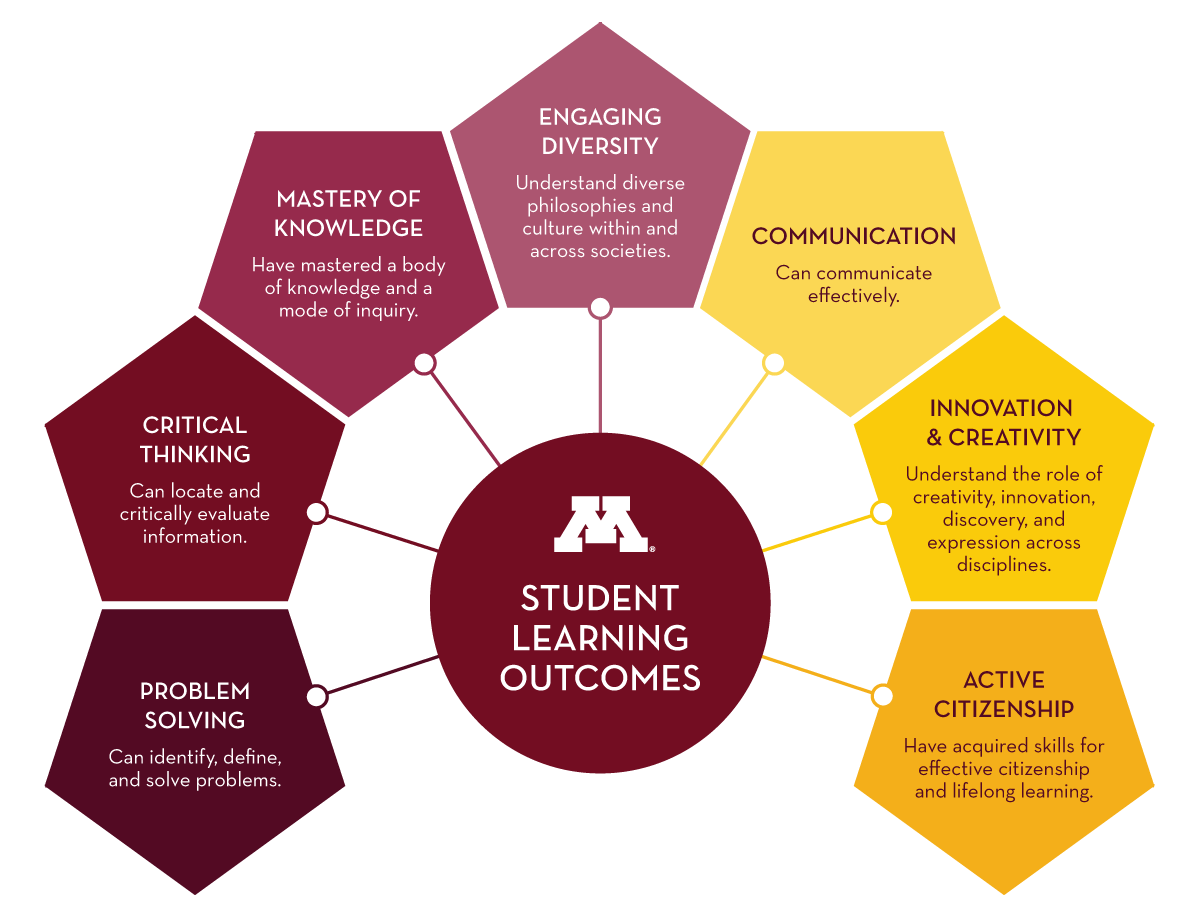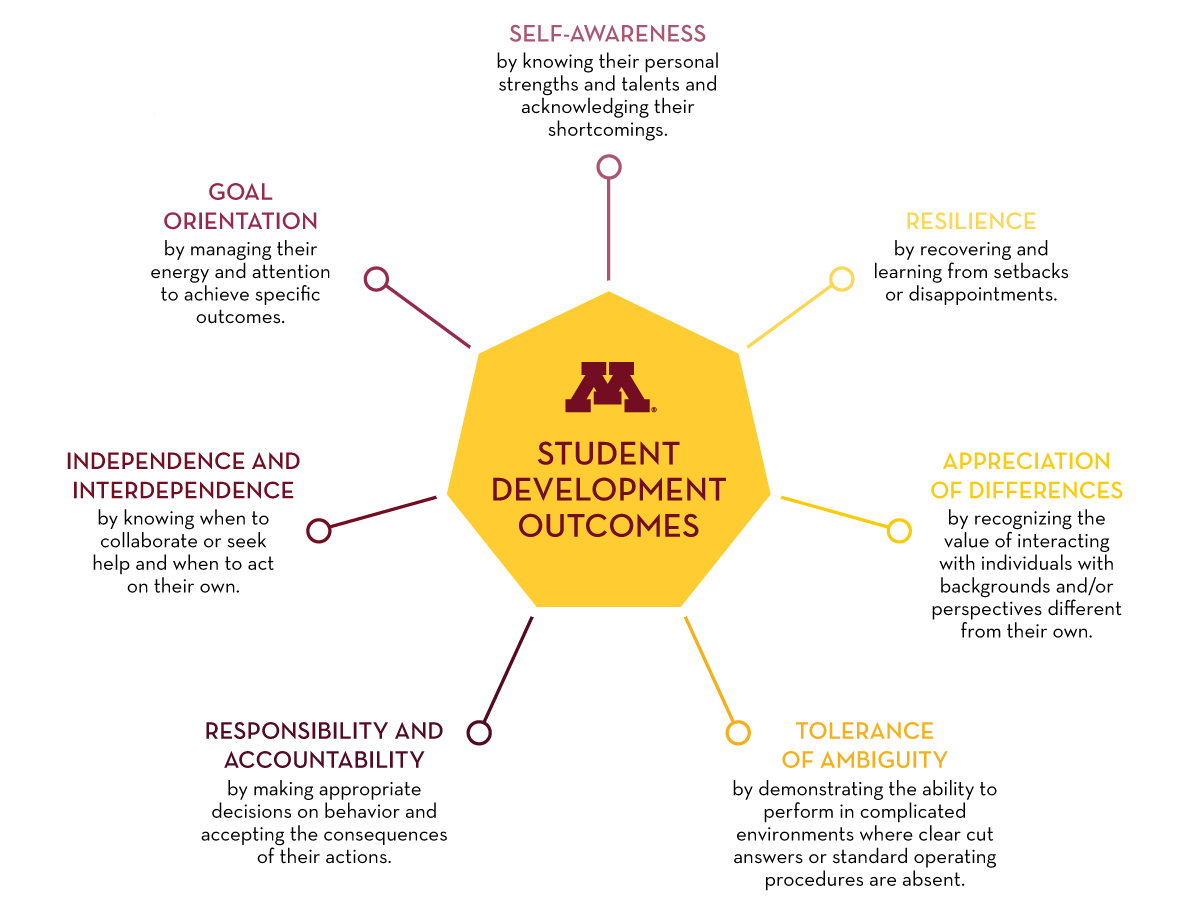
The University has a long history of commitment to assessing student learning. With the adoption of the current University of Minnesota’s undergraduate student learning outcomes (SLOs), the University has undertaken a renewed effort to establish more consistent assessment frame-work across all departments, provided stronger central leadership, simplified expectations, and worked to connect the multiple streams of assessment data to better inform academic planning.
Our mission is to support all academic and support units in their assessment of student learning/development process to continuously enhance the student experience.
At the time of receiving a bachelor’s degree, students will have the following skills:
- Problem Solving: Can identify, define, and solve problems.
- Critical Thinking: Can locate and critically evaluate information.
- Mastery of Knowledge: Have mastered a body of knowledge and a mode of inquiry.
- Engaging Diversity: Understand diverse philosophies and culture within and across societies.
- Communication: Can communicate effectively.
- Innovation & Creativity: Understand the role of creativity, innovation, discovery, and expression across disciplines.
- Active Citizenship: Have acquired skills for effective citizenship and lifelong learning.

The University of Minnesota is committed to providing the best undergraduate experience possible for its students and to prepare them for the next stages of their lives. It is in pursuit of these goals that the University is intentionally promoting the seven student development outcomes (SDOs) for all undergraduate students.
University of Minnesota undergraduates will demonstrate:
- Responsibility and Accountability by making appropriate decisions on behavior and accepting the consequences of their actions.
- Independence and Interdependence by knowing when to collaborate or seek help and when to act on their own.
- Goal Orientation by managing their energy and attention to achieve specific outcomes.
- Self-Awareness by knowing their personal strengths and talents and acknowledging their shortcomings.
- Resilience by recovering and learning from setbacks or disappointments.
- Appreciation of Differences by recognizing the value of interacting with individuals with backgrounds and/or perspectives different from their own.
- Tolerance of Ambiguity by demonstrating the ability to perform in complicated environments where clear cut answers or standard operating procedures are absent.